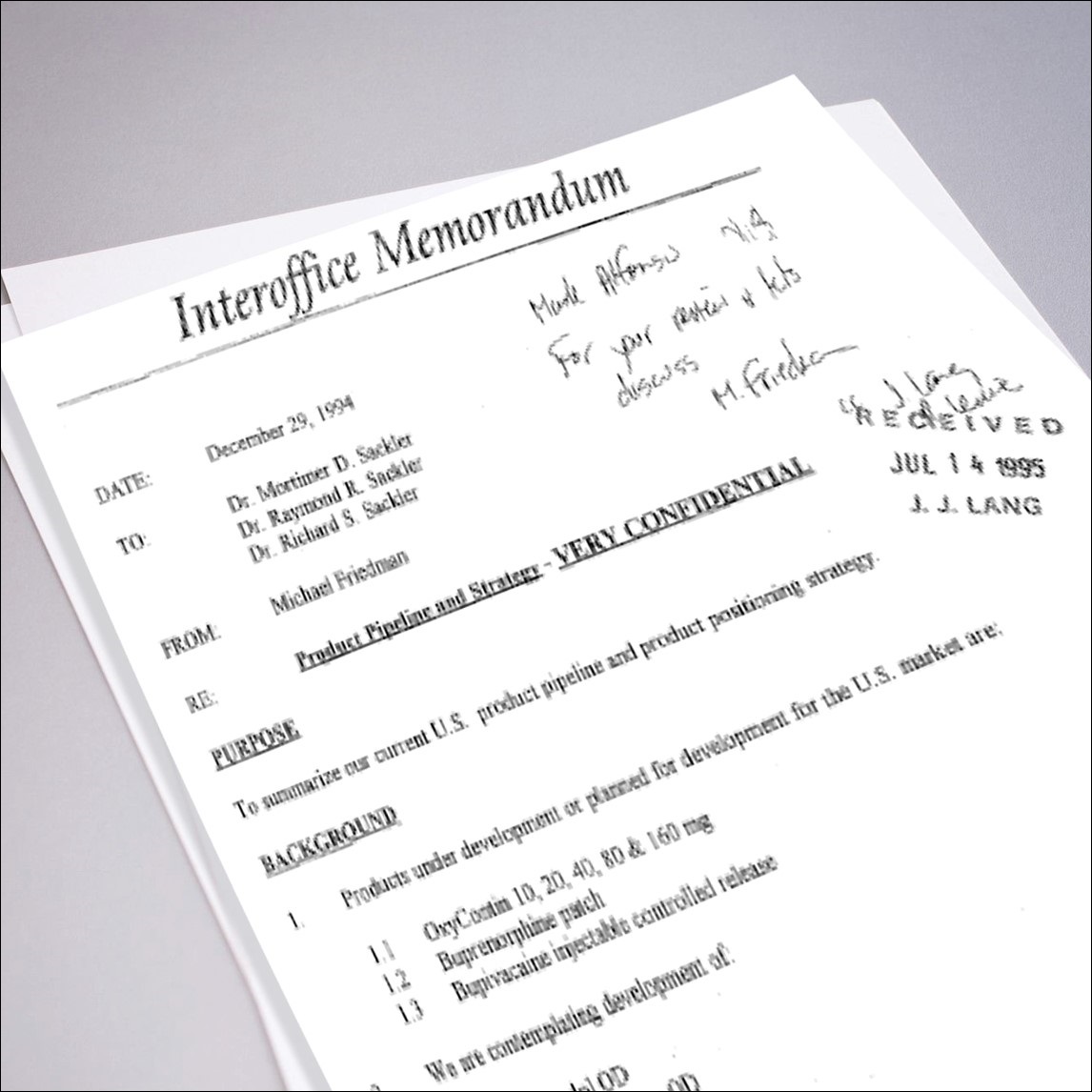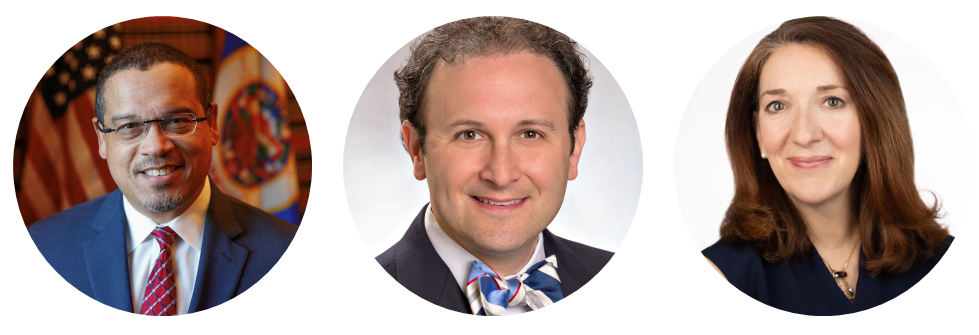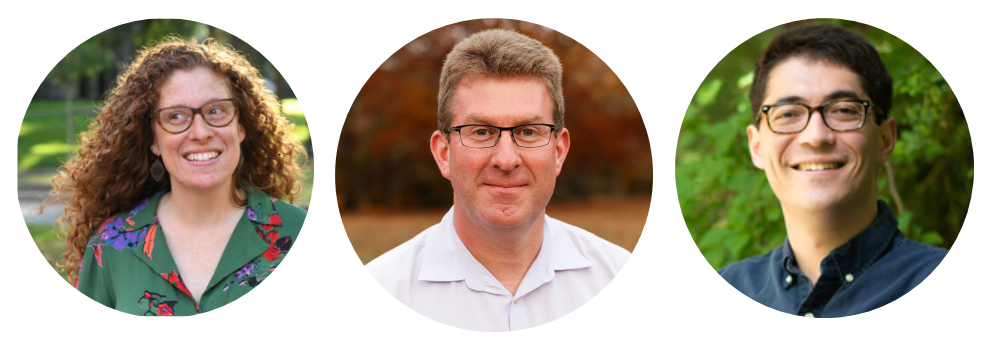
The Opioid Industry Documents Archive: National Symposium 2024
Monday, May 13 through Thursday, May 16, 2024
Noon-2:30 PM (ET) ● 9:00 AM-11:30 AM (PT)
Online
The Opioid Industry Documents Archive (OIDA) is a digital archive co-created by the University of California, San Francisco and Johns Hopkins University containing millions of documents from the opioid industry that shed light on the root causes of the opioid crisis. This unique virtual symposium offers a series of complementary panels that will demonstrate OIDA’s value in addressing fundamental questions of importance to health policy experts, archivists and historians.
Watch recordings of the full symposium. Recordings for individual presentations are linked below.
Day #1 – Health Policy and Law (AG Ellison Keynote)
Monday, May 13, Noon-2:30 PM (ET) ● 9:00 AM-11:30 AM (PT)
This group of experts will explore how laws and policies are being developed to prevent further harms from the opioid crisis, and the critical role of document disclosure as a means to improve public health. Watch the full Day 1 recording.
12:00-12:15 Welcome (Caleb Alexander, Johns Hopkins University) [video]
G. Caleb Alexander is professor of epidemiology and medicine at the Johns Hopkins Bloomberg School of Public Health and co-founding director of its Center for Drug Safety and Effectiveness.
12:15-1:00 Keynote (Keith Ellison, Minnesota Attorney General’s Office) [video]
Keith Ellison was sworn in as Minnesota’s 30th attorney general on January 7, 2019. As the People’s Lawyer, Attorney General Ellison’s job is to help Minnesotans afford their lives and live with dignity, safety, and respect. His guiding values are generosity and inclusion.
From 2007 to 2019, Keith Ellison represented Minnesota’s 5th Congressional District in the U.S. House of Representatives, where he championed consumer, worker, environmental, and civil- and human-rights protections for Minnesotans. He served for 12 years on the House Financial Services Committee, where he helped oversee the financial services industry, the housing industry, and Wall Street, among others. Among his legislative accomplishments are passing provisions to protect credit-card holders from abusive practices and protect the rights of renters and tenants. While in Congress, he founded the Congressional Antitrust Caucus and the Congressional Consumer Justice Caucus. He also served as co-chair of the Congressional Progressive Caucus, which he helped build to more than 100 members.
Before being elected to Congress, Attorney General Ellison served four years in the Minnesota House of Representatives. Prior to entering elective office, he spent 16 years as an attorney specializing in civil-rights and defense law, including five years as executive director of the Legal Rights Center. As the leader of this public-interest law firm, he oversaw a team of attorneys focused on delivering justice for Minnesotans who had nowhere else to turn. He was also a noted community activist.
1:00-1:30 Presentation #1 (Aaron Kesselheim, Harvard University) [video]
Aaron S. Kesselheim is a Professor of Medicine at Harvard Medical School (HMS) and a faculty member in the Division of Pharmacoepidemiology and Pharmacoeconomics in the Department of Medicine at Brigham and Women’s Hospital (BWH). He is a primary care physician at the Phyllis Jen Center for Primary Care at Brigham and Women’s Hospital. Within the Division, Kesselheim created and leads the Program On Regulation, Therapeutics, And Law (PORTAL), an interdisciplinary research core focusing on intersections among prescription drugs and medical devices, patient health outcomes, and regulatory practices and the law. He was recognized as one of the top three most cited health law scholars in the US from 2013-2020 in Web of Science, Westlaw, and GoogleScholar.
Kesselheim is a core faculty member at the HMS Center for Bioethics, where he co-teaches a course on health policy, law, and bioethics and organizes a monthly policy and ethics seminar series. He also serves as a Visiting Professor of Law at Yale Law School, where he teaches a yearly course on Food and Drug Administration Law and Policy, which is also offered at the Yale School of Public Health. Kesselheim is the editor-in-chief of the Journal of Law, Medicine, and Ethics. In 2020, he was elected to the National Academy of Medicine.
1:30-2:00 Presentation #2 (Regina LaBelle, Georgetown University) [video]
Regina LaBelle is a distinguished scholar and director of the Addiction and Public Policy Initiative at the O’Neill Institute for National and Global Health Law at Georgetown University Law Center.
Working at the intersection of law and policy, LaBelle’s work focuses on identifying policies to reduce overdoses, and using the law to promote access to quality addiction treatment, harm reduction, and recovery support services.
LaBelle also founded, directs, and teaches in the Master of Science in Addiction Policy and Practice program at Georgetown University’s Graduate School of Arts and Sciences.
LaBelle brings decades of public service to her work at the O’Neill Institute. Most recently, LaBelle was an appointee in the Biden-Harris administration and served as acting director in the Office of National Drug Control Policy (ONDCP) in the Executive Office of the President. The first woman to serve in this position, LaBelle oversaw the establishment of the Biden-Harris administration’s drug policy priorities, which included a historic focus on harm reduction services. LaBelle previously served in the Obama administration as chief of staff at ONDCP and oversaw the agency’s efforts to respond to the opioid epidemic and other drug policy issues, including implementation of the National Drug Control Strategy.
2:00-2:25 Facilitated Discussion (Adam Koon, Johns Hopkins University) [video]
Adam Koon is an assistant scientist in the International Health department of the Johns Hopkins Bloomberg School of Public Health.
2:25-2:30 Wrap-up (Caleb Alexander)

From left: Keith Ellison, Aaron Kesselheim, Regina LaBelle
Day #2 – Information Science
Tuesday, May 14, Noon-2:30 PM (ET) ● 9:00 AM-11:30 AM (PT)
In the digital age, organizational records are being produced on a scale that dwarfs physical archives and even digital archives based only on electronic documents. Speakers will talk about the challenges and opportunities of managing and providing access to massive digital collections like OIDA. Watch the full Day 2 recording.
12:00-12:15 Welcome (Anne Seymour, Johns Hopkins University) [video]
Anne Seymour is associate dean of the Welch Medical Library at Johns Hopkins University & Medicine.
12:15-1:00 Keynote (Laurie Allen, Library of Congress) [video]
Laurie Allen works as the Chief of the Digital Innovation Division (LC Labs) at the Library of Congress. As part of the Digital Strategy Directorate in the Office of the Chief Information Officer, Laurie’s team leads experiments in AI and in other areas, hosts the Library’s Innovator in Residence program, and works to lower barriers to innovation by staff and patrons of the largest library in the world. She joined the Library in 2019, after working for nearly 20 years in academic libraries at the intersection of technology and new approaches to scholarship and public engagement. Laurie is a lifelong and devoted Philadelphian.
1:00-1:30 Presentation #1 (Rob Sanderson, Yale University) [video]
Robert Sanderson is the Senior Director for Digital Cultural Heritage at Yale University, where he works to ensure the availability of the organization’s content in a usable way via open standards such as Linked Open Data and the International Image Interoperability Framework (IIIF).
Previous experiences include Semantic Architect for the J. Paul Getty Trust, information standards advocate at Stanford University Libraries, information scientist at Los Alamos National Laboratory, and Lecturer in Computer Science at the University of Liverpool. He is a leader in international efforts in the information science world, including IIIF, semantic standards in the W3C, and cultural heritage specific models such as Linked Art and CIDOC-CRM in the International Council of Museums (ICOM).
1:30-2:00 Presentation #2 (Ben Lee, University of Washington) [video]
Benjamin Charles Germain Lee is an incoming Assistant Professor in the Information School at the University of Washington, as well as a Kluge Fellow in Digital Studies at the Library of Congress. He recently received his Ph.D. in Computer Science & Engineering from the University of Washington, which was supported by a National Science Foundation Graduate Research Fellowship in machine learning. He served as the inaugural Digital Humanities Associate Fellow at the United States Holocaust Memorial Museum, as well as a Visiting Fellow in Harvard’s History Department. Ben also served as a 2020 Innovator in Residence at the Library of Congress and the 2020-2021 Richard and Ina Willner Memorial Fellow in the Stroum Center for Jewish Studies at the University of Washington.
2:00-2:25 Facilitated Discussion (Kevin Hawkins, Johns Hopkins University) [video]
Kevin Hawkins is Program Director for the Opioid Industry Documents Archive at the Johns Hopkins Bloomberg School of Public Health.
2:25-2:30 Wrap-up

Day #3 – History and Science of Medicine
Thursday, May 16, Noon-2:30 PM (ET) ● 9:00 AM-11:30 AM (PT)
This interdisciplinary panel will discuss the ways in which OIDA collections are an important gateway into telling new stories and developing new analyses about the worst drug epidemic in U.S. history. Watch the full Day 3 recording.
12:00-12:15 Welcome (Jason M. Chernesky, Johns Hopkins University) [video]
Jason M. Chernesky is the CLIR Opioid Industry Research Postdoctoral Fellow at Johns Hopkins University.
12:15-1:00 Keynote (David Courtwright, University of North Florida) [video]
David Courtwright is best known for his research on the history of drugs and addictive behaviors. He has also written on social, political, and policy history and has taught medical, U.S., and world history at the University of North Florida, where he is Presidential Professor emeritus in the Department of History.
His most recent book, The Age of Addiction: How Bad Habits Became Big Business, is a history of global limbic capitalism. He is currently researching and writing a history of the U.S. opioid crisis. Other publications include Forces of Habit: Drugs and the Making of the Modern World and Dark Paradise: A History of Opiate Addiction in America.
1:00-1:30 Presentation #1 (Antoine Lentacker, University of California, Riverside) [video]
Antoine Lentacker is an Assistant Professor of History at the University of California, Riverside. His research interests include the history of drugs and the pharmaceutical industry in Europe and the U.S. His work has appeared in Social Studies of Science, The Journal of Modern History, and Representations, among others. His involvement in efforts to advocate for the public disclosure of the opioid litigation documents goes back to the summer of 2019, when he set out to draft an amicus brief that called for the inclusion of broad transparency provisions in any settlement of the ongoing opioid lawsuits. A reflection piece on that effort appeared in the Spring 2021 issue of Social History of Alcohol and Drugs under the title “The Opioid Documents: A Report on the Politics of the Public Record.”
1:30-2:00 Presentation #2 (Liz Chiarello, Saint Louis University) [video]
Liz Chiarello is an Associate Professor of Sociology at Saint Louis University. She conducts research at the intersection of healthcare and law. Her research centers on how cultural forces such as law, politics, and organizational policy influence decision-making in healthcare and the criminal-legal system.
Professor Chiarello’s current project centers on the U.S. overdose crisis. She examines how the fields of healthcare and criminal justice have used shared surveillance technology to address the crisis and how doing so has changed professional work and undermined patient care. Her research is supported by a National Science Foundation CAREER Award and her book, Policing Patients, is forthcoming with Princeton University Press.
Professor Chiarello has been a postdoctoral fellow at Princeton University and a Radcliffe Fellow at Harvard University. Her work has appeared in sociology and socio-legal journals as well as popular media including op-eds, and podcasts. She is a frequent public commentator on opioid-related topics and has been featured in USA Today, Bloomberg News, and St. Louis on the Air.
2:00-2:25 Facilitated Discussion (Cecília Tomori, Johns Hopkins University) [video]
Cecília Tomori is associate professor and director of Global Public Health and Community Health at the Johns Hopkins School of Nursing, with a joint appointment at the Johns Hopkins Bloomberg School of Public Health.
2:25-2:30 Wrap-up (Jason M. Chernesky)

The OIDA National Symposium has been made possible in part with support from the UCSF-JHU Opioid Industry Documents Archive.


